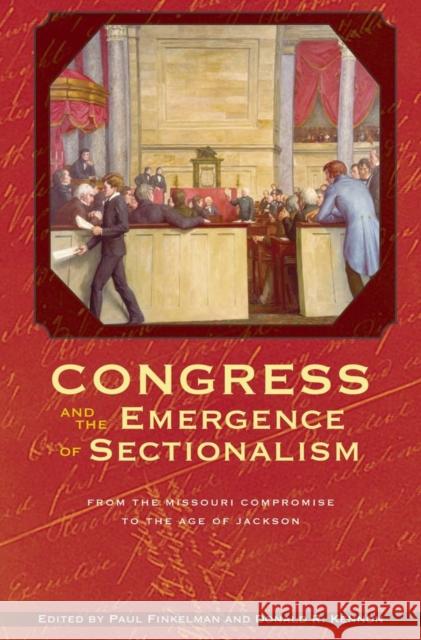Congress and the Emergence of Sectionalism: From the Missouri Compromise to the Age of Jackson » książka
Congress and the Emergence of Sectionalism: From the Missouri Compromise to the Age of Jackson
ISBN-13: 9780821417836 / Angielski / Twarda / 2008 / 293 str.
Congress and the Emergence of Sectionalism: From the Missouri Compromise to the Age of Jackson
ISBN-13: 9780821417836 / Angielski / Twarda / 2008 / 293 str.
(netto: 213,69 VAT: 5%)
Najniższa cena z 30 dni: 212,43
ok. 30 dni roboczych
Bez gwarancji dostawy przed świętami
Darmowa dostawa!
In 1815 the United States was a proud and confident nation. Its second war with England had come to a successful conclusion, and Americans seemed united as never before. The collapse of the Federalists left the Jeffersonian Republicans in control of virtually all important governmental offices. This period of harmony what historians once called the Era of Good Feeling was not illusory, but it was far from stable. One-party government could not persist for long in a vibrant democracy full of ambitious politicians, and sectional harmony was possible only as long as no one addressed the hard issues: slavery, race, western expansion, and economic development.
"Congress and the Emergence of Sectionalism: From the Missouri Compromise to the Age of Jackson" inaugurates a new series for the United States Capitol Historical Society, one that will focus on issues that led to the secession crisis and the Civil War. This first volume examines controversies surrounding sectionalism and the rise of Jacksonian Democracy, placing these sources of conflict in the context of congressional action in the 1820s and 1830s. The essays in this volume consider the plight of American Indians, sectional strife over banking and commerce, emerging issues involving slavery, and the very nature of American democracy.
Contributors:
Michael Les Benedict
Daniel Feller
Robert P. Forbes
William W. Freehling
Tim Alan Garrison
Jan Lewis
Peter S. Onuf
Jenny B. Wahl"











